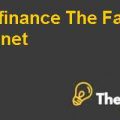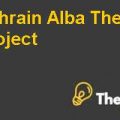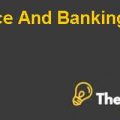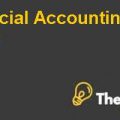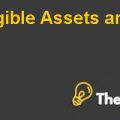
Quality Imaging Products (QIP)
What makes buying a business entrepreneurial?
Most of the time, enterpreneurs like to start a business from scratch by starting from zero and initiating ideas from the start. In most cases, starting from scratch cannot be a wise decision because it involves various risks and threats associated in terms of building relationships with suppliers and making strong database for customers. Further, the company will face difficulties in marketing their new businesses and generating positive cash flows. On the other side, purchasing an existing business is a wiser option as it is less risky from many aspects. First of all, already existing business has cash flows that are generating profits. In addition, customers and suppliers database are well structured and well maintained. Further, policies are already established in an established business.
On the other hand, sometimes it is often costly to acquire a business by some party rather than starting a new one. However, one can easily get financing for already established business rather than getting finances and funds for new business. Further, buying an existing business will give additional benefits with respect to patents, legal rights and copyrights. Buying an existing business requires some measures that should be taken. Firstly, it is necessary for an entrepreneur to purchase the right business along with the business size with respect to its employees and revenues. After that, selecting right geographical location is extremely important as well. In addition, entrepreneur should look into the inventory levels, infrastructure, legal documents, financial statements, sales record, account receivables, customer patterns and reputation of an existing business.
Evaluate Stein’s search process.
Stein was working with a council that was a group, which give suggestions and advice in the public sector about implementing practices from the private sector. At that time, Stein decided to jump into the public sector and start searching to get his own business. After completing his second year in the business school, Stein started finding investors and put together his search fund. He then set-up an office and started searching for the companies. By November 2000, Stein heard about QIP and received a basic investment proposal. He then received the full offering memorandum about QIP and its overall management. He also analyzed the pros and cons of the company to evaluate the overall position. QIP was extremely diversified in terms of customer data base, and that was the most-attractive point for Stein to consider QIP. By the end of December, he met with investment bankers to get more information. Further in January 2001, Stein met with the owner of QIP to discuss the industry, business, sales, financials and operations of the company. To search perfect business for him, Stein searched for more than a year. During this year. he looked almost 1900 deals, interviewed 29 management teams and visited 17 companies.
What are Stein’s qualifications as CEO? Is he a good match for QIP? Why did the search fund support him?
Stein has expertise in his domain in terms of acting as a powerful leader. Moreover, the CEO possesses personal and leadership power to inspire others. Further, he can handle multi-tasks at a time. In addition to that, a good trait of a CEO is to communicate company’s vision by showing clarity of purpose. Besides that, the CEO was able to build value to its customers by creating long-term strategic decisions. Stein was a visionary entrepreneur; thus, he successfully managed to plan for the future. He fruitfully implemented change by taking several initiatives like hiring a new CFO and creating a system in which information sharing and communication became a culture of the company. He proved himself as a good match for the company because he was able to make the company more structured.
Assess Stein’s due diligence on QIP before closing the deal. What did he concentrate on? What did he neglect? What did he learn? What did he miss?
Before closing the deal, Stein had performed due diligence that was based on investigating and auditing the company’s financial and internal operations so as to gather facts and figures accurately. After extracting information from various resources, Stein realized that the company never employed a senior financial officer and the company never had an external audit review. He decided to perform due diligence process and identify several issues. He came to know that the owner removed general manager’s compensation just to increase the value of the business. He further identified that the owner eliminated an inventory reserve, included some scrap products in his inventory figures and neglected to account for any accruals. After due diligence, he learned that it often happens that sometimes a seller intentionally hide information or even provide wrong facts and figures about the company. On the other hand, Stein missed analyzing the reason behind decreasing margins of the company.....................
This is just a sample partial case solution. Please place the order on the website to order your own originally done case solution.
Martin Stein, a recent graduate of the Business School, is the new owner of the product quality Imaging (QIP), $ 10 millionth year remanufactured cartridge printer and copier ink. A few weeks after buying the company, vice president of finance for the QIP, gives an ultimatum: either he is increasing, leaving the burden of straightening Stein dysfunctional financial system, as customers, suppliers, managers, and production staff to compete for attention. Stein presents as an example a small company manager, who must juggle a much broader range of issues in greater depth than his large company of colleagues to meet the needs of customers at a profit. "Hide
by Steven J. Spear, Jonathan P. Groberg Source: Harvard Business School 21 pages. Publication Date: August 26, 2002. Prod. #: 603057-PDF-ENG


